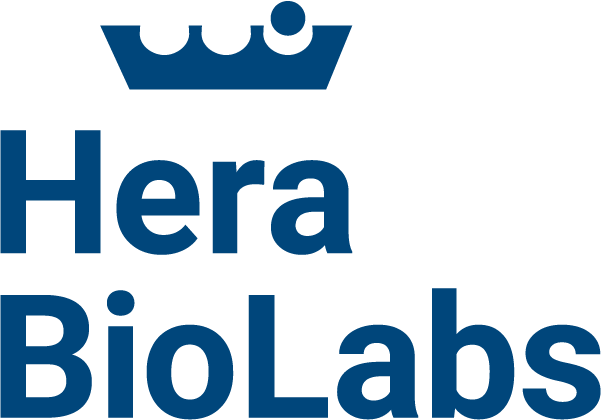- Cas-CLOVER’s Key Advantages In Animal Model Gene Editing - In this article we discuss our proof-of-concept (POC) data in mouse embryos and the apparent advantages that Cas-CLOVER may have over the popular CRISPR/Cas9 for animal model gene editing. The CRISPR/Cas9 platform has been a staple in the animal models community, however Cas-CLOVER has recently been shown to have multiple advantages including larger deletions, a lack of off-target effects, and… Continue Reading >
- Hera Biolabs Receives AAALAC Accreditation For Exceptional Animal Care - One of the most important parts of the entire drug development process is the use of animals in the testing during the preclinical phase. Humane Treatment Of Animals Translates Into Better Science AAALAC International is a private, nonprofit organization that sets the bar for humane treatment of animals in science through rigorous accreditation and assessment programs. Earning AAALAC accreditation requires… Continue Reading >
- Fine Needle Aspirate Serial Tumor Sampling Services To Boost Your Xenograft Study Capabilities - Xenograft tumors from human cancer cell lines in immunocompromised mice are a staple of pre-clinical oncology research. However, tumor size limits, small blood volume, and minimal toxicology capabilities are significant challenges when using mice as an animal model. Hera BioLabs is proud to offer improved preclinical study opportunities using the SRG rat (OncoRat®), with tumor volumes growing up to 10,000+ mm³ or ten times the size of a mouse xenograft… Continue Reading >
- Validation Of The SRG Rat For Human Tumor Studies Published In PLOS ONE - We Are Excited To Announce That A Validation Study Using The SRG Rat Engrafted With Human Tumors (OncoRat®) Has Been Published In PLOS ONE. Specifically, the paper validated the use of the OncoRat® in human tumor oncology studies. The paper, titled “The SRG rat, a Sprague-Dawley Rag2/Il2rg double-knockout validated for human tumor oncology studies,” is a collaboration among researchers working… Continue Reading >
- Gene Editing With piggyBac: Creating A Curative Treatment For Beta-Thalassemia - Genetic Engineering Can Soon Lead To Lifelong Cures For Diseases That Were Previously Incurable - And ß-thalassemia Is The Perfect Example. Through novel therapeutic methods like cell therapy, scientists have found a way to cure a disease that used to only be manageable. Previous gene editing methods used to treat ß-thalassemia were limited and nonspecific; however, advances like piggyBac and… Continue Reading >
- Humanized Skin And Immune Cell Rodent Models Revolutionizing Scientific Research - A current challenge in medical research is developing and choosing biologically appropriate models. In skin disorder research, the differences between human and animal skin, including absorption capacity, thickness, protein configuration, and DNA repair mechanisms is a significant limitation. Human Skin and Immune System (hSIS)-humanized NOD-scid IL2Rgnull (NSG) mouse and Sprague-Dawley-Rag2tm2hera Il2rgtm1hera (SRG) OncoRat® models are ideal animal hosts for studies… Continue Reading >
- OncoRat® Featured In Clinical Cancer Research For Prostate Cancer Studies - Improving Preclinical Anticancer Studies Using Rat Xenograft Model Systems: A Case Study Of SRG OncoRat Tumor Xenografts From A Clinical Cancer Research Publication (paper link) Using the SRG OncoRat and xenograft validation services from Hera BioLabs, researchers were able to: Collect and validate an efficient, human relevant model system Confirm and compare data in the OncoRat with NSG mice Determine lead… Continue Reading >
- The OncoRat® Is The Ideal Host For Patient-Derived Xenografts Of Ovarian Cancer Cells - Ovarian cancer is the most lethal gynecological cancer in the United States. Advances in cytotoxic, platinum-based chemotherapeutics combined with tumor resection surgery allows approximately 80% of these patients to achieve remission. Unfortunately, the vast majority have a tumor recurrence within 12-24 months and relapsed ovarian cancer is recognized as being universally incurable1-2. Large genomic analyses of ovarian tumors, using databases… Continue Reading >
- H358 NSCLC Xenografts In Humanized Rats: The Ideal In Vivo Model For Studying KRAS Mutations - Lung adenocarcinomas, the major histological subtype of non-small cell lung cancers (NSCLC), harbor oncogenic KRAS mutations in approximately 25% of cases. Many of the targeted therapies that have been studied and approved for the treatment of NSCLC specifically target the EGFR – KRAS – BRAF – MEK – ERK signaling kinase cascade as oncogenic addiction to these growth factor signals… Continue Reading >
- Hera Biolabs Announces Molecular Cancer Therapeutics Publication On Immunodeficient Rats For Oncology Research - Hera Biolabs, the University of Michigan, Case Western Reverse University and other collaborators are announcing a recent publication in the American Association for Cancer Research (AACR) journal, Molecular Cancer Therapeutics, entitled, "Sprague Dawley Rag2-null rats created from engineered spermatogonial stem cells are immunodeficient and permissive to human xenografts." Continue Reading >
InsightsHera Admin2022-01-13T09:32:40+00:00
